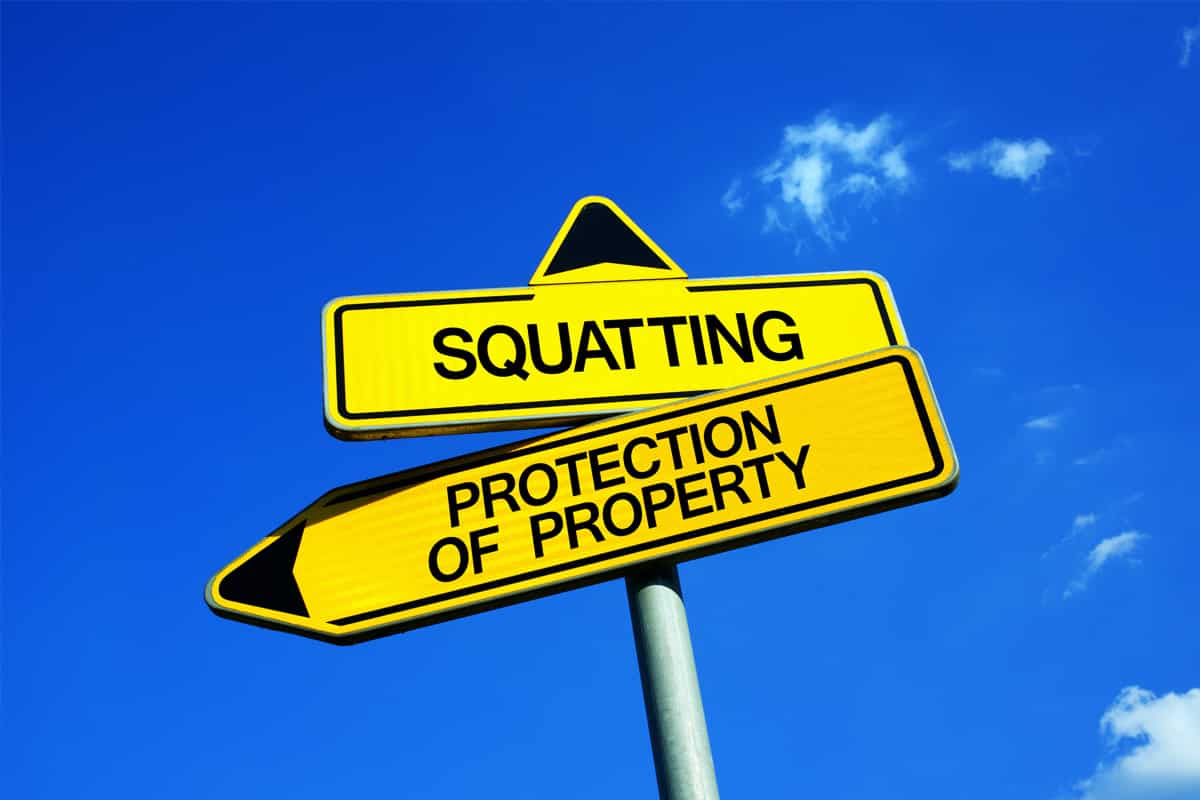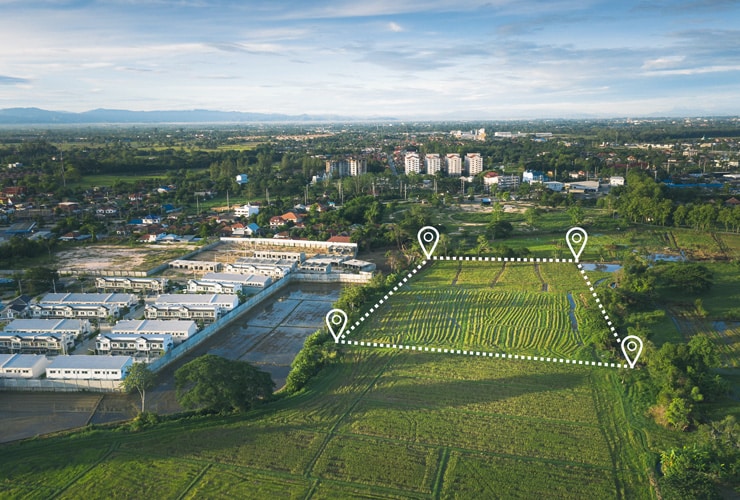What is Adverse Possession and How Does it Work?
Adverse possession is a legal concept, defined in law where someone may be able to claim legal ownership of land just by occupying it in some cases. It's a complex process with years of history, tracing back to medieval England. Here, we explain the meaning of adverse possession, how it is defined and how it works in England and Wales.

-
by Robert Jones, Founder of Property Investments UK
With two decades in UK property, Rob has been investing in buy-to-let since 2005, and uses property data to develop tools for property market analysis.
Adverse Possession Meaning
the open and exclusive occupation and use of someone else's real property without permission of the owner continuously for a period of years prescribed by law, thereafter giving title to the occupier-user.
source: dictionary.com
The origins can be traced to medieval England where it was a solution in the absence of written records allowing individuals who openly occupied land continuously for a specified period to claim ownership even if their occupation was initially unlawful.
Simply put, adverse possession describes a legal concept where someone who does not have legal title to land and who did not buy it can become its legal owner.
They do this by possessing it for a long enough period to override the interests of the original owner.
Although it is not that simple that you can simply squat and control land or a building. Squatters do have some rights, however squatting in a residential property is indeed illegal.
Whilst the meaning of adverse possession involves possessing some land for a long enough period to claim ownership of it, there are several exceptions and conditions at play. While adverse possession may sound simple, it is far from it in practice.
It is a complex part of property law in England and Wales and if you have a genuine claim for land that you have been in occupation of, then engaging with a suitably experienced conveyancer is recommended. It is not easy to piece together conveyancing step by step without experience.

Access our selection of exclusive, high-yielding, off-market property deals and a personal consultant to guide you through your options.
Claiming Land by Adverse Possession Examples
There are a range of scenarios that can occur that can give someone the potential of claiming land by adverse possession, including some examples:

Registered and Unregistered Land
Whether land is registered or unregistered is relevant to the concept of adverse possession.
This is important because the law on adverse possession differs according to whether the land is registered or unregistered. The Land Registration Act 2002 changed how adverse possession applied from October 2003.
So what is meant by registered or unregistered land?
In England and Wales, all land is owned by someone even if the legal owner can't be identified.
The government, for a number of years, has been pushing to digitalise all land and property ownership across the country, so now, when any land is bought or sold, it is automatically registered, but this of course, wasn't the case many years ago.
It wasn't until 1990 that all land needed to be registered as a compulsory requirement (and 1998 for inherited property). Reasons for registration now include:
- land sold for the first time (as a new property)
- a property being mortgaged
- land or property that has been inherited
- or a previously unregistered property or plot of land that is sold
This land and property is then registered at HM Land Registry.
There isn't a public, centrally documented map of all registered land (and owners) in the UK. If you know the title of the property or address you can find the details at the HM Land Registry search.
For unregistered land, there is an impressive map of unregistered land here by Anna Powell-Smith.

How to Claim Adverse Possession
If you wish to claim adverse possession or defend a claim for adverse possession, it is helpful to understand there is an official procedure.
We look at this below and as a starting point it's helpful to know that
- Registered land - can you claim a property after 10 years? Yes here is the detail with HM Land Registry.
- Unregistered land - can I claim land after 12 years? Yes here is the detail with HM Land Registry.
Note: It is highly advisable to take expert legal advice before considering a claim for adverse possession.
Not quite an adverse possession act, but there are a range of guides published by HM Land Registry that outline the process and requirements, think of it like adverse possession rules, including:
- Practice guide 4: Adverse possession of registered land
- Practice guide 5: Adverse possession of unregistered land
Once you have read these.
A person may apply for what is known as possessory title after possessing some land for a specified period.
Now based on the above, some people may be thinking for unregistered land, can I claim land after 12 years?
Whilst this maybe the case for some situations this timeline is extended to 30 years for the crown.
There is a lot of nuance and detail here, so a successful claim really relies on understanding the history and the law for your specific situation.
Remember applications are not processed by the courts but processed by HM Land Registry.
An application for adverse possession is made using form ADV1: registration of a person in adverse possession.
HM Land Registry will check to ensure the legal requirements are being met. Generally, the applicant must show what is known as factual possession, that they are an exclusive possessor, and that they are using the land with a commitment to carry on doing so.
If the land is registered, then HM Land Registry will inform the registered owner and any other interested parties (for example, a mortgagee) that an application for adverse possession has been made. These parties will then be entitled to object.
How to Defend Yourself from an Adverse Possession Claim
If you are thinking, can someone take ownership of your house without permission?
This isn't that simple. As above, squatting is illegal, if someone has entered your house without permission.
Adverse possession has a very specific place in property law. The situations are varied and nuanced.
So it is recommended if you find someone has taken possession of some land you own or believe you own without your permission, you should take legal advice.
You should also report it to the police, especially if the property is residential, as their actions may constitute a criminal offence. It is a bad idea to try and forcibly evict someone who has taken possession of your land without taking legal advice, as in some cases you could also be breaking the law.
How to Prevent and Stop Adverse Possession
If you own land in England and Wales or you have an empty property that you are concerned could be claimed by someone using the law of adverse possession, there are steps you can take to help minimise the risks and stop a valid claim of adverse possession, using several measures:
- You should ensure that any property you own is registered with HM Land Registry. This includes property you have bought, inherited or been given.
- If you own unregistered land, then this is something you should deal with as soon as possible and complete a registration to help protect your ownership.
- You should also ensure that HM Land Registry always has your up-to-date contact details and correspondence address. So if you move house ensure this is updated.
- Check that the property you believe you own is the same title number and deed that is registered with HM Land Registry.
- It is paramount that any land you own is secured and maintained on your behalf if you are personally not actually using it or visiting it regularly.
If indeed you do have an empty property and the reason it is kept empty is due to financial constraints, there are other options to help bring the property back into use. Depending on your location, there are a number of empty home grants available from local councils that focus on derelict and run-down buildings to help bring these properties back into use.
